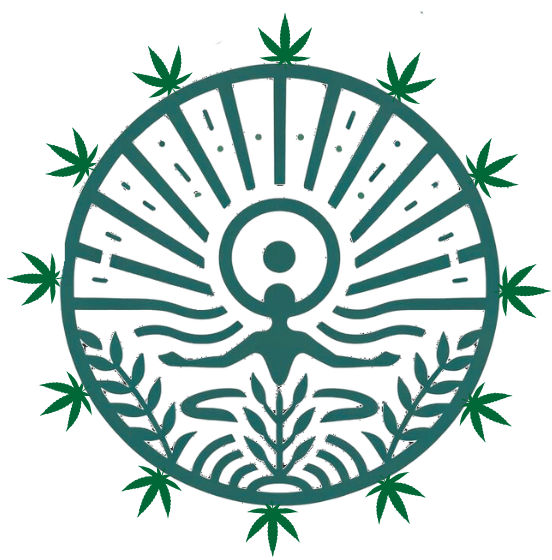As the global perspective on psychedelics shifts, countries around the world are increasingly embracing the decriminalization and legalization of these substances for therapeutic use.
Amidst emerging research highlighting their potential benefits in treating mental and physical health conditions, nations from Central Africa to the United States are reevaluating their legal stance on psychedelics, including psilocybin, MDMA, and LSD.
According to Grace Blest-Hopely, a leading neuroscientist and psychedelic researcher, “Psychedelics are not only very effective at treating a wide range of indications that currently lack treatment options but are also proving, when used responsibly, very safe.”
Today, our aim is to bring you up-to-speed on the various psychedelic drug regulations, so that you can better understand the global approach to these substances.
Portugal’s landmark decision
In 2001, Portugal took a leap and decriminalized all drugs, including psychedelics.
This radical step was a response to a severe drug crisis in the country. Instead of punishing drug users, the focus shifted to treating drug use as a public health issue.
Now, if someone is found with less than a ten-day supply of any drug, they’re not arrested.
Rather, they are sent to a ‘Dissuasion Commission‘, comprising legal, social, and psychological experts.
The commission decides whether to fine or refer the person for treatment.
This approach has led to significant reductions in drug-related deaths and HIV infection rates.
While it’s important to note that decriminalization does not equate to legalization, it does mean an individual will not face criminal charges for personal possession.
This approach has led to significant reductions in drug-related deaths and HIV infection rates among drug users in Portugal.
Canada’s medical exemptions
Canada, while not having decriminalized psychedelics, has taken a different route.
In August 2020, the Canadian Minister of Health granted an exemption under Section 56(1) of the Controlled Drugs and Substances Act to four terminally ill patients.
This exemption allowed these patients to use psilocybin, a psychedelic compound found in magic mushrooms, as part of their end-of-life care.
This marked a significant milestone in the acceptance of psychedelics for therapeutic use.
Following this, in December 2020, another 17 healthcare professionals were granted the same exemption for professional training purposes.
SImply put, they can now legally use psilocybin to better understand its effects and potential therapeutic benefits.
The evidence is clear: psychedelic therapy can provide significant relief from end-of-life distress.
This ground-breaking decision opens up a new avenue for research and potential therapeutic applications of psychedelics in Canada.
United States’ mixed stance
In the United States, the legal status of psychedelics is complex and varies significantly by state.
Broadly speaking, psychedelics are classified under Schedule I drugs by the federal Controlled Substances Act.
This means they’re considered to have a high potential for abuse and no accepted medical use – making their possession, sale, or use illegal.
However, there’s a growing movement towards decriminalization at the local level.
Cities like Denver, Oakland, and Santa Cruz have passed initiatives to decriminalize certain types of psychedelics.
Oregon took a step further in 2020 by passing Measure 109, which allows regulated medical use of psilocybin, the active ingredient in magic mushrooms.
Interestingly, the US also has a few exceptions for religious use of psychedelics.
The Supreme Court has upheld the right of certain religious groups to use substances like ayahuasca and peyote in their rituals.
In spite of these changes at the local level, it’s crucial to remember that federal law still prohibits the use of these substances.
Brazil’s acceptance of Ayahuasca
Moving south, Brazil presents an interesting case.
Here, the use of Ayahuasca, a potent psychedelic brew used in traditional Amazonian shamanic practices, is legal.
This acceptance is due to the brew’s deep cultural and religious significance.
The Brazilian government recognizes the use of Ayahuasca in religious ceremonies by several indigenous communities and syncretic churches such as the Santo Daime and União do Vegetal.
However, you might be wondering about its recreational use.
Well, Brazil does not criminalize the personal use of drugs. Instead, it tackles drug use as a public health issue.
So, while the commercial production and sale of drugs remain illegal, the personal use of Ayahuasca outside religious contexts is not penalized.
This stance provides an intriguing perspective on the legal status of psychedelics in Brazil.
Psychedelics in the Netherlands
Finally, let’s move across the Atlantic and delve into the legal landscape of psychedelics in the Netherlands.
The Dutch approach is more liberal compared to other countries, but it’s not as straightforward as you might think.
Magic mushrooms were banned in 2008, but an interesting loophole exists.
‘Magic truffles’ and grow kits, which contain the same psychoactive compounds as magic mushrooms, remain legal and are openly sold.
Ayahuasca, which is a psychedelic brew from the Amazon rainforest, is also illegal.
The Dutch Supreme Court upheld this ban in 2019, despite arguments about its use for religious purposes.
Similarly, LSD and other synthetic psychedelics are illegal under Dutch law.
Despite these restrictions, the Netherlands is known for its progressive drug policy that focuses on harm reduction over criminalization.
This approach reflects a broader cultural attitude towards drugs and personal freedom.
A global shift towards acceptance
As you can see, the legal landscape is complex and varies from country to country.
In some regions, decriminalization means possession or use of personal amounts may not lead to prosecution, though it remains technically illegal.
But it’s clear that we can see a clear global shift in attitudes towards psychedelics.
While the legal status of these substances remains a complex issue, varying across countries and even within states, the trend toward decriminalization and medical use is evident.
It’s not just about curiosity or recreational use.
It’s about acknowledging the potential of these powerful substances in dealing with serious mental health issues.
We are witnessing a fascinating period of transition, with the stigma around psychedelics gradually fading and a more open dialogue emerging.
The future of psychedelics
The path ahead in the realm of psychedelics is indeed intriguing.
As we observe, the legal landscape is changing, with countries acknowledging the potential therapeutic benefits of these substances.
It signifies a pivotal shift from treating psychedelic use as a criminal issue to considering it a matter of public health and personal growth.
This evolving perspective encourages us to view setbacks as an opportunity for growth and self-discovery.
The future of psychedelics might just hold the key to unlocking new avenues in mental health treatment and personal evolution.
Isn’t it an exciting time to be part of this transformation and witness how it unfolds globally?











